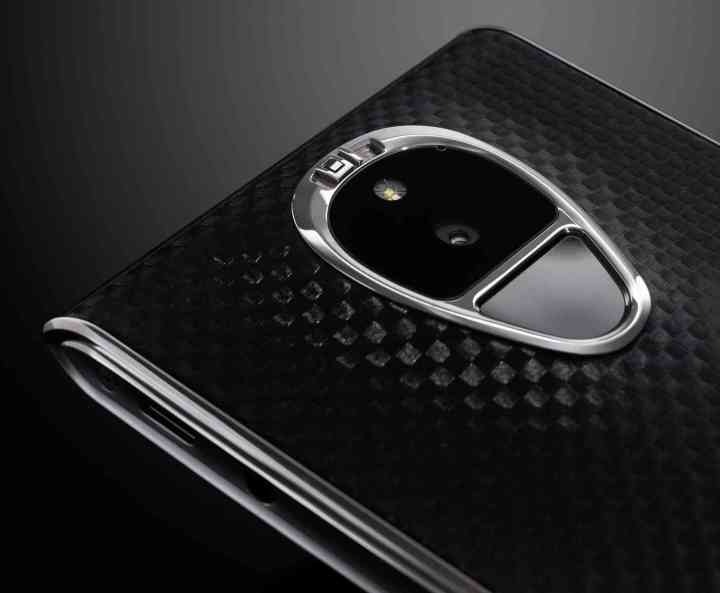
But lest you conclude that true privacy in today’s world is fundamentally unachievable, an Israel-based device company promises to offer a semblance of it in the form of the Solarin, a privacy-conscious smartphone aimed at protecting the data it contains from prying eyes.
Sirin Labs, a relative newcomer in the world of tech, unveiled the Solarin in an event in London on Tuesday. The smartphone, which has been in development for two years at the company’s research facilities in Tel Aviv and Lund, Sweden, features a litany of “military-grade” encryption tech from established companies in the software security space. It’s got a physical toggle that can be switched on to scramble outgoing voice calls, Sirin Labs said, plus hardware-based 256-bit AES encryption from KoolSpan — “the same technology that [armed servicemen] around the world use to protect their communications.” And on the software side of things, the Solarin comes with Zimperium’s suite of mobile security apps preinstalled.
The Solarin’s internals measure up to the high bar set by its security chops. Its got a rear cover of crafted sapphire glass and packs a 5.5-inch, 1440p high-contrast IPS LED, a quad-core Qualcomm Snapdragon 810 processor, 4GB of RAM, and 128GB of storage. In terms of audio and power, it sports what might be appropriately described as overkill: a multidirectional directional, three-speaker array (two speakers below the screen and speaker above) and a beefy, 4,000mAh battery. And to match its outsized silicon, the Solarin features an impressive-sounding pair of cameras: a 24MP rear-facing shooter with a four-color flash module, autofocus, and an f/2.0 lens; and an 8MP front-facing camera with a dedicated flash of its own. (Sirin Labs claimed the cameras are among the “best in the world” on a smartphone, an assertion we’ll have to put to the test.)
The Solarin is not lacking the connectivity department, either. As might be expected in a phone positioned as “enterprise” and “global,” the handset supports a bevy of cutting-edge cellular and wireless technologies, including 24 bands of X10 LTE; high-speed, 802.11ac 2×2 MU-MIMO Wi-Fi; and WiGi (802.11ad). All that, in real-world terms, allows it to reach theoretical download and upload speeds of 450Mbps and 150Mbps, respectively, Sirin Labs said.
But the security features and high-end hardware and connectivity command a premium. The Solarin starts at $14,000, a price Sirin Labs said is justified by the handset’s premium components and features. It’s undergoing certification by information security firm The NCC Group, the company points out, and will only be sold to citizens of select countries who are identified with their passports. It’ll go on sale starting June 1 at Sirin Labs’ flagship store in London, with availability at Harrods to follow on June 30.
The Solarin is “aimed at the international businessperson who carries a lot of sensitive information but doesn’t want to compromise on usability, quality or design,” Sirin Labs said, and investors seem on board — the company raised more than $72 million in a seed round of funding from Chinese social networking website Renren and Kazakh businessman Kenges Rakishev, among others. The Solarin is hardly the first smartphone sporting high-end security measures at a premium, though it’s the most expensive by far. And with a sticker price higher than even the $10,000 Vertu Ti, the Solarin faces an uphill climb among luxury phone buyers who may be less willing to buy Sirin Labs’ vision of a secure handset than, say, inlaid Swarovski crystals. Time will tell.


